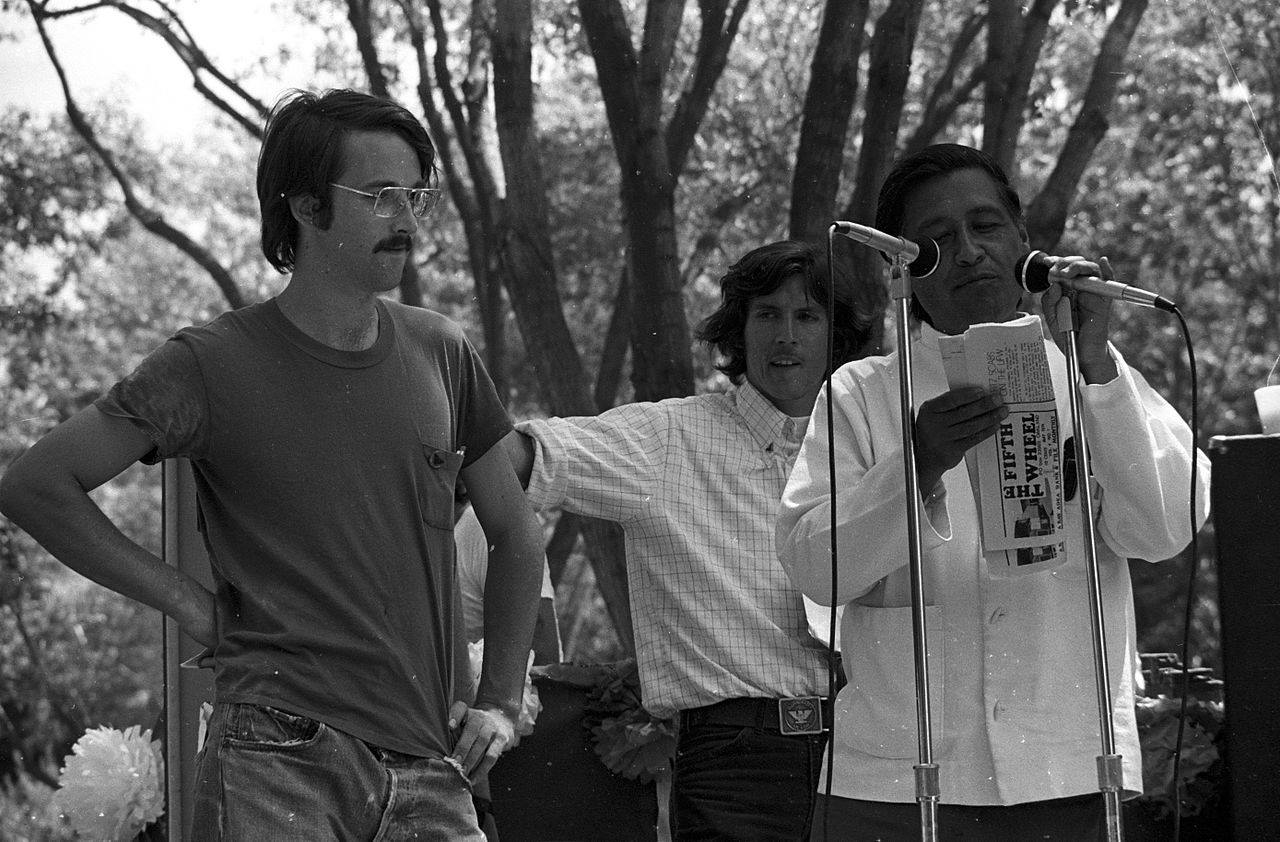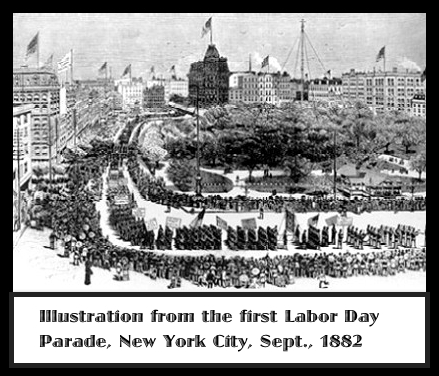December 10, 2015
UFCW Local 400 Applauds Introduction of “Just Hours” Legislation in D.C.
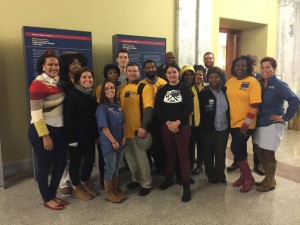 Last week, Mark Federici, President of UFCW Local 400, which has more than 3,000 members living in Washington, D.C., released the following statement in response to the introduction of the “Hours and Scheduling Stability Act.”
Last week, Mark Federici, President of UFCW Local 400, which has more than 3,000 members living in Washington, D.C., released the following statement in response to the introduction of the “Hours and Scheduling Stability Act.”
“If you ask anyone who works at a retail store in D.C. how to improve their job, the response is likely to include scheduling. Stable hours and predictable scheduling make it easier for people to plan their future and spend time with their families. Unfortunately, in the interest of maximizing their bottom lines, numerous retail stores in D.C. rely on erratic and last minute scheduling that forces people to work harder and longer and be unaware of their shift until the last moment.
“The Hours and Scheduling Stability Act would begin to curb these abusive scheduling practices by giving retail workers advance notice of their schedules, stopping on-call practices, and promoting full-time work opportunities by offering available hours to current employees before new ones are hired.
“The bottom line is that uncertain work schedules are too common in this city and they’re making it increasingly difficult for people who work at retail stores throughout D.C. to make ends meet.
“The legislation introduced today would go a long way towards ensuring retail workers in D.C. are given the consistent hours and schedules they need to create better lives for themselves and their families.
“We urge the D.C. Council to pass the Hours and Scheduling Stability Act as soon as possible.”
Summary of Bill’s Key Provisions:
Scheduling with advance notice so that people aren’t living day-to-day:
- Employers must post schedules 21 days in advance.
- If an employer initiates a schedule change thereafter, the employee will receive one hour of pay as compensation for the change.
- If the change occurs within 24 hours of a shift, the employee is awarded four hours of pay.
Promoting full-time work opportunities so that people have enough hours to make ends meet:
- Employers will offer available hours to qualified current employees before hiring new employees.
Stopping abusive “on-call” practices so families can plan their lives:
- If an employer cancels an employee’s shift or declines to call in an “on-call” employee with less than 24 hours’ notice, the employee will receive four hours of pay.
- The law already guarantees employees a minimum daily pay of four hours when they report to work – this provision would simply close the “on-call” shift loophole.
Ensuring equal treatment for hourly employees:
- An employer may not discriminate against employees of the same job qualification with regard to rate of pay, leave and promotion opportunities regardless of hours worked.
Who does this legislation apply to?
- Chain retail employers with at least five establishments nationwide; and chain fast-food and full-service restaurants with at least 20 establishments nationwide.
For more information, please visit the DC Just Hours website.
December 10, 2015
UFCW Local 400 Applauds Introduction of “Just Hours” Legislation in D.C.
 Last week, Mark Federici, President of UFCW Local 400, which has more than 3,000 members living in Washington, D.C., released the following statement in response to the introduction of the “Hours and Scheduling Stability Act.”
Last week, Mark Federici, President of UFCW Local 400, which has more than 3,000 members living in Washington, D.C., released the following statement in response to the introduction of the “Hours and Scheduling Stability Act.”
“If you ask anyone who works at a retail store in D.C. how to improve their job, the response is likely to include scheduling. Stable hours and predictable scheduling make it easier for people to plan their future and spend time with their families. Unfortunately, in the interest of maximizing their bottom lines, numerous retail stores in D.C. rely on erratic and last minute scheduling that forces people to work harder and longer and be unaware of their shift until the last moment.
“The Hours and Scheduling Stability Act would begin to curb these abusive scheduling practices by giving retail workers advance notice of their schedules, stopping on-call practices, and promoting full-time work opportunities by offering available hours to current employees before new ones are hired.
“The bottom line is that uncertain work schedules are too common in this city and they’re making it increasingly difficult for people who work at retail stores throughout D.C. to make ends meet.
“The legislation introduced today would go a long way towards ensuring retail workers in D.C. are given the consistent hours and schedules they need to create better lives for themselves and their families.
“We urge the D.C. Council to pass the Hours and Scheduling Stability Act as soon as possible.”
Summary of Bill’s Key Provisions:
Scheduling with advance notice so that people aren’t living day-to-day:
- Employers must post schedules 21 days in advance.
- If an employer initiates a schedule change thereafter, the employee will receive one hour of pay as compensation for the change.
- If the change occurs within 24 hours of a shift, the employee is awarded four hours of pay.
Promoting full-time work opportunities so that people have enough hours to make ends meet:
- Employers will offer available hours to qualified current employees before hiring new employees.
Stopping abusive “on-call” practices so families can plan their lives:
- If an employer cancels an employee’s shift or declines to call in an “on-call” employee with less than 24 hours’ notice, the employee will receive four hours of pay.
- The law already guarantees employees a minimum daily pay of four hours when they report to work – this provision would simply close the “on-call” shift loophole.
Ensuring equal treatment for hourly employees:
- An employer may not discriminate against employees of the same job qualification with regard to rate of pay, leave and promotion opportunities regardless of hours worked.
Who does this legislation apply to?
- Chain retail employers with at least five establishments nationwide; and chain fast-food and full-service restaurants with at least 20 establishments nationwide.
For more information, please visit the DC Just Hours website.
October 21, 2015
New UFCW Canada Flags Abuse of Migrant Agriculture Workers in Canada
 A new report from UFCW Canada and the Agriculture Workers Alliance reveals how many of Canada’s more than 45,000 migrant and temporary agriculture workers regularly face workplace and human rights abuse. The Status of Migrant Farm Workers in Canada 2015 details how this mostly invisible workforce, hidden away in agriculture centers across Canada, is left vulnerable to exploitation because of legislative and regulatory discrimination that denies migrant agriculture workers basic workplace, labor, and health and safety rights.
A new report from UFCW Canada and the Agriculture Workers Alliance reveals how many of Canada’s more than 45,000 migrant and temporary agriculture workers regularly face workplace and human rights abuse. The Status of Migrant Farm Workers in Canada 2015 details how this mostly invisible workforce, hidden away in agriculture centers across Canada, is left vulnerable to exploitation because of legislative and regulatory discrimination that denies migrant agriculture workers basic workplace, labor, and health and safety rights.
Currently, in Ontario – the province with the largest agriculture workforce – workers in the sector are excluded from unionizing under the Labour Relations Act. In most jurisdictions across the country, migrant agriculture workers are also restricted from the fullest protection of provincial employment standards and health and safety regulations. As the new report details, the result is that Canada’s migrant agriculture workers are faced with conditions where exploitation and abuse are all too common. Migrant and temporary agriculture worker programs in Canada are regulated by the federal government, and typically tie a worker to one employer with no option to seek another if there is a workplace problem.
Providing transferable work permits is just one of the report’s 19 recommended legal reforms to provide fair treatment for migrant agriculture workers. Other recommendations include an impartial worker appeal process when faced with arbitrary repatriation, national standards to monitor and discipline offshore recruiters, mandatory dormitory health and safety inspections, as well as revising discriminatory legislation where it exists, to provide agriculture workers the same rights as other workers to join a union and bargain collectively.
The full report on the status of Migrant Agriculture Workers in Canada 2015 is available for download in PDF format at www.ufcw.ca/statusreport2015.
October 15, 2015
Honoring a Devoted UFCW “Cancer Kicker”
Originally posted by The Leukemia and Lymphoma Society
Frank Meehan spent two decades spearheading the United Food & Commercial Workers’ (UFCW) effort to raise money to defeat blood cancers. As president of the Long Island, NY Local, he was one of the first leaders to act upon the union’s national relationship withThe Leukemia & Lymphoma Society (LLS).
Then last spring, in a twist of fate, he ended up losing his life to one of the aggressive leukemias he’d been hoping to see cured.
“It’s so ironic. He worked so hard for this cause,” said his wife Pam. “He kicked off UFCW’s involvement for years. For him to pass from acute myeloid leukemia (AML) just blew us all away.”
Meehan, who was 75, looked and felt fine when he went for his annual physical in December. He had a low level of vitamin B12 that he couldn’t seem to kick but that was it. When a doctor did a bone marrow biopsy in March just to be safe, he was diagnosed with AML. The initial treatment knocked out his white blood cells and when he developed a complication, it couldn’t be treated and he got pneumonia. He died on Easter Sunday, only three weeks after being diagnosed.
At first his family was angry. He did so much to fight leukemia. Why would this happen to him?
“But then you ask why it would happen to a small child,” said Pam Meehan. “There’s no answer. It’s just a devastating loss.”
This year’s Light The Night Walk is a special one for Local 1500 as members are participating in the Oct. 17 event in East Meadow in honor of Meehan. The “Cancer Kicker” group has traditionally raised more than $50,000 a year for LLS by hosting walks at Shea Stadium, bowling tournaments, comedy shows, raffles and bus trips to Atlantic City, When Meehan retired in 2005, the local raised more than $100,000 in his honor and donated it to LLS.
“Frank lived a life of openhearted generosity and cared for all who met him,” said Tony Speelman, secretary-treasurer for Local 1500. “He touched the lives of thousands of working men and women through his kindred spirit, generosity and loving demeanor. He was a friend, a father, a husband, a grandfather, but no title could ever sum up the essence of Frank Meehan. He was simply one of a kind.”
The labor leader was at the forefront of battles to improve the working conditions of thousands of union members. A part-time grocery store worker who rose to become a store manager, he became an organizer and union representative, and was elected president of Local 1500 in 1984.
David Timko, LLS’s senior vice president for volunteer engagement, said that once Meehan understood the LLS mission and the tragedy of blood cancers, he took up the cause. The union held him in high regard and he was an inspiration to others, Timko said. While sick in the hospital, he signed a release to donate blood and other samples for research.
“He lived such a rich life and did so much for others,” Timko added. “He spent so many years fundraising for LLS and he passed away just as we were beginning to make progress.”
Pam Meehan said she continues to have great hope for upcoming research. For her husband, doctors said that getting AML was like flipping a switch. One minute you’re fine, the next you’re sick.
“I hope somewhere out there someone will find a way to turn that switch off and save other people from going through this,” she said.
Donate to Local 1500’s team here.
UFCW a Powerful Voice
The United Food and Commercial Workers Union (UFCW) has been a powerful voice for LLS for an amazing 32 years – raising close to $77 million! In 2015 alone, the UFCW raised $1.9 million in the U.S. and more than $2.5 million in Canada. Fundraising activities included charity golf tournaments, auctions, dinners, bottle drives, bowling events and sporting clay shooting events along with participation in LLS campaigns such as Light The Night, Team In Training and other activities.
The UFCW is now focusing on getting more of its locals to participate in the Light The Night Walk and it looks like that number will triple this fall.
Here are just a few examples of how the UFCW has been involved. Local 328, representing workers in Rhode Island, southern Massachusetts. and eastern Connecticut, reached the $1 million milestone recently through its annual golf tournament. In addition, UFCW Local 75 in the Cincinnati/Dayton area raised $110,000 with a charity golf tournament, Shoot for a Cure event and participation in Light The Night. UFCW members affiliated with The Beer Store supported a bottle drive for LLSC throughout Canada that raised more than $1.7 million.
The UFCW, the largest private sector union in the country, represents workers in the grocery industry as well as nursing homes; retail clothing stores; poultry, meatpacking and food processing plants; and in numerous other retail and food manufacturing areas.
October 13, 2015
Poll of Workers Who Make Less Than $15 Shows 72% Support for Unions
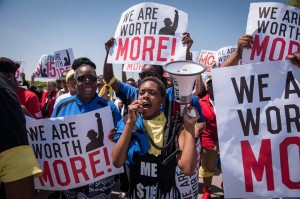 Seventy-two percent of underpaid workers approve of labor unions, and 75 percent support a $15 minimum wage and a union according to the first-ever poll of workers paid less than $15 an hour.
Seventy-two percent of underpaid workers approve of labor unions, and 75 percent support a $15 minimum wage and a union according to the first-ever poll of workers paid less than $15 an hour.
The poll, released last Monday by the National Employment Law Project (NELP), follows on an April 2015 NELP study that found 42 percent of workers in the nation are paid less than $15 an hour. With the presidential campaign season heating up and Democrats convening next week for their first candidate debate, the poll looks at the voting preferences of this critical demographic of underpaid workers:
- 69 percent of unregistered respondents say they would register to vote if there were a presidential candidate who supports raising the minimum wage to $15 an hour and making it easier for workers to join a union;
- 65 percent of registered voters say they are more likely to vote if a candidate supports $15 and a union for all workers; and
- 69 percent of respondents favor raising the minimum wage to $15 an hour.
The poll is the latest in a band of research demonstrating growing public support for unions and the importance of unions in the economic recovery. A recent Gallup Organization poll found a sharp uptick—to 58 percent—in approval of labor unions amongst the general population; the poll released today shows a significantly higher level of support among underpaid workers—higher than any Gallup study has recorded for the general population since 1959:
- 72 percent of underpaid workers approve of unions;
- 69 percent say it should be easier for workers like themselves to join together and form a union;
- 72 percent believe unions can make a real difference in whether or not workers like themselves get raises;
- 66 percent say they would have a better chance of making $15 an hour and being able to support their families if they could join a union; and
- Support for $15 and a union is particularly strong in the South: 77 percent of Southern respondents expressed support.
“We’ve long known that unions help create good jobs and boost the economy, and now we know that underpaid workers share that view as well,” said NELP Executive Director Christine Owens. “An overwhelming majority want $15 and a union—and a president who will stand behind them in support of these basic rights. Underpaid workers in our country are a powerful force to be reckoned with in the workplace and the voting booth.”
October 5, 2015
Hispanic Heritage Month: Celebrating the 50th Anniversary of the Delano Grape Strike
This year, Hispanic Heritage Month coincides with the 50th anniversary of the beginning of the Delano Grape Strike, and provides us with an opportunity to pay tribute to two great labor leaders who co-founded the National Farm Workers Association (NFWA) and helped to organize one of the most successful strikes in labor history—Cesar Chavez and Dolores Huerta.
On September 8, 1965, Filipino farm workers in Delano, Calif., who were members of the Agricultural Workers Organizing Committee (AWOC), walked off the job at table grape farms in the area to protest the low pay and poor working conditions. The leaders of AWOC knew that a successful strike had to include the many Latino farm workers in Delano, and they reached out to Chavez, Huerta and the NFWA to join them in their fight for dignity and respect on the job. Chavez insisted that the Filipino and Latino strikers work together and take a vow to remain nonviolent, and expanded the goals of the strikers to include the right to unionize and engage in collective bargaining. Realizing their common goals, the NFWA and AWOC merged to form the United Farm Workers Organizing Committee in 1966.
In 1966, Chavez led a strike of California grape workers on a 300 mile march from Delano to Sacramento to raise awareness for their cause. Soon, the strike spread to thousands of workers and the movement gained national attention and support from around the country, including the support of Robert F. Kennedy. In 1967, Chavez shifted his focus and urged consumers and supermarket chains to boycott table grapes. In response to the plight of the farm workers, Americans throughout the country refrained from buying table grapes in a show of support. After five years of nonviolent strikes, boycotts, marches and fasts, the United Farm Workers Organizing Committee succeeded in reaching a collective bargaining agreement with table grape growers in California in 1970—resulting in better pay, benefits and workplace conditions for thousands of farm workers.
In 1972, the United Farm Workers Organizing Committee was accepted into the AFL-CIO and changed its name to the United Farmworkers Union. A year later in 1973, Chavez and Huerta led another successful consumer boycott against California grape growers that resulted in the California Agricultural Labor Relations Act of 1975, which allowed farm workers to form unions and bargain for better wages and working conditions.
September 25, 2015
UFCW Celebrates Hispanic Heritage Month
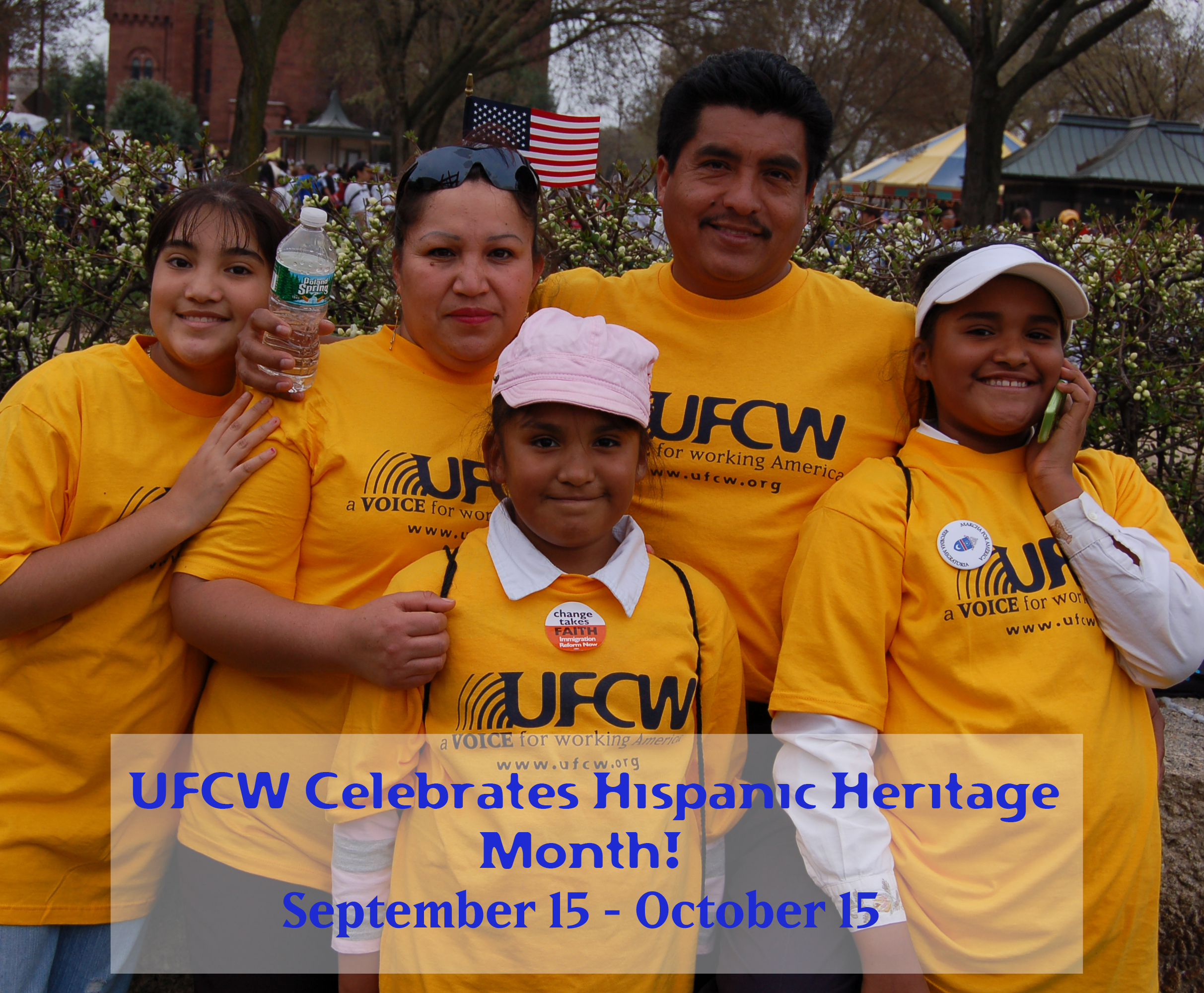 Hispanic Heritage Month is a time for the UFCW to pay tribute to Hispanic Americans and their positive contributions to our communities and our country.
Hispanic Heritage Month is a time for the UFCW to pay tribute to Hispanic Americans and their positive contributions to our communities and our country.
The origins of this celebration date back to President Lyndon Johnson, who first established Hispanic Heritage Week in 1968. In 1988, President Ronald Reagan expanded the celebration to cover a 30-day period from September 15 to October 15. Hispanic Heritage Month was enacted into law in 1988, and the start date of September 15 was chosen for the celebration because it marks the anniversary of independence for a number of Latin American countries.
Throughout Hispanic Heritage Month, the UFCW will pay tribute to the culture and history of Hispanic Americans and their positive impact on the labor movement.
Do you have a story to share about your Hispanic heritage or how the Labor movement has played a role in your life? Let us know here and we might share it on our blog and social media!
September 14, 2015
Union, Yes: Unions Help Kids in Our Communities
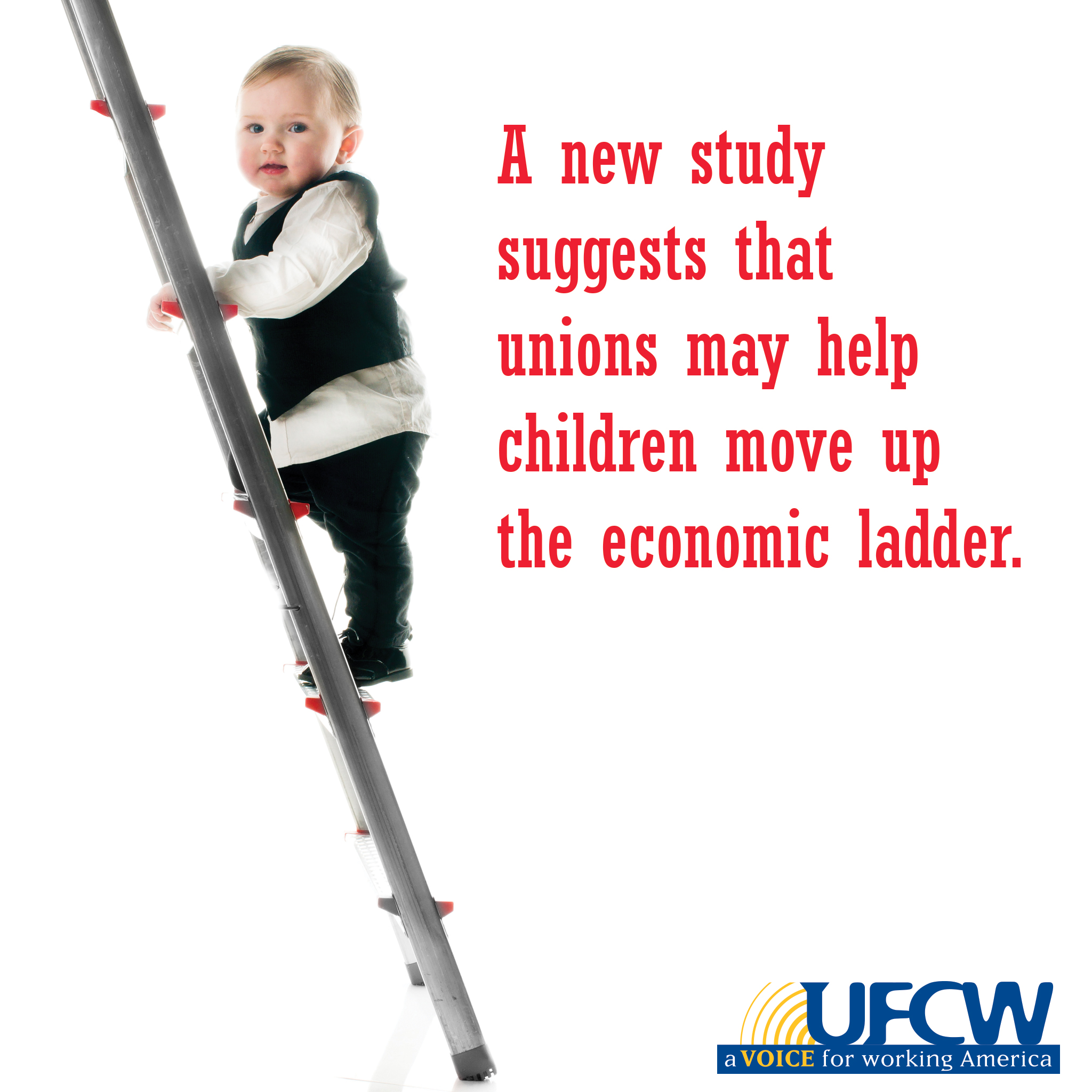 A new study shows yet another benefit of unions you may not be aware of: The New York Times this week wrote about a study that “suggests that unions may also help children move up the economic ladder.”
A new study shows yet another benefit of unions you may not be aware of: The New York Times this week wrote about a study that “suggests that unions may also help children move up the economic ladder.”
The paper–written by researchers at Harvard, Wellesley and the Center for American Progress–essentially finds that children born into low-income families have a greater chance of ascending “to higher incomes in metropolitan areas where union membership is higher.”
The Times article points out that it seems that no other link to upward mobility is as strong as the one found in the study. It’s also another reason why the decline in union membership is so troubling.
Beyond the effect of unionization on parents’ wages, the researchers found that this trend is also attributed to the fact that “unions are effective at pushing the political system to deliver policies — like a higher minimum wage and greater spending on schools and other government programs — that broadly benefit workers.” Perhaps the best and most recent examples of this are seen in San Francisco, Seattle, and New York, where the minimum wage has been raised significantly.
And the correlation between increased union membership and increased income earning percentile for children doesn’t just apply to children in the lowest percentile, but children of all households.
Interestingly, the study also found that “children with fathers who belong to a union have significantly higher wages than children who don’t. But when it’s the mother who belongs to a union, only the wages of daughters rise.”
When trying to determine why, the Times notes that “it’s possible that the explanation is sociological: Daughters with a mother who belongs to a union may be more likely to work themselves, which means they’re more likely to have higher wages. Or, put differently, union membership is helping to change social norms.”
What norms are unions changing exactly? “Giving workers a greater sense of agency.” That sense, that union workers have the power to speak out if they are mistreated, then spreads to their peers.
Richard B. Freeman, one of the study’s authors, summarizes the takeaway nicely: “things that have a small effect at the individual level can have a larger aggregate effect.”
September 2, 2015
Honoring the History of Labor Day
While most Americans view Labor Day as the last long weekend of the summer and another day off work, the history behind the holiday was actually a result of one of the most intense and violent struggles for workers’ rights.
In 1894, during a time of severe economic and social unrest, thousands of workers at the Pullman Palace Car Company went on strike to protest the way George Pullman, founder and president of the Pullman Palace Car Company, treated his workers. Pullman was one of the wealthiest men in the Chicago area, and subjected his workers to high rents and low pay in the company town he had built for them near the factory. His actions forced many of his workers into debt and poverty. When his workers rebelled and went on strike with the support of Eugene Debs and the American Railway Union, Pullman gained the support of President Grover Cleveland, who ordered federal troops to intervene—leading to a bloody confrontation and the deaths of more than 30 Pullman workers. Soon afterwards and amid growing criticism to the brutal response to the striking workers, President Cleveland established Labor Day as a national holiday in an effort to appease organized labor.
One hundred and twenty-one years after the Pullman Strike, our country is still grappling with economic and social unrest as income inequality persists and the right of workers to stick together for better workplace conditions continues to be challenged. Too many American workers are struggling to survive in low-wage, part-time jobs that hamper their ability to move up the economic ladder. And the sheer desperation of many Americans who simply want to work has enabled many companies to cut wages and hours, misclassify workers as independent contractors or hire temporary workers to avoid providing benefits, subject their workers to erratic scheduling practices, and punish those who speak out for better workplace conditions.
Many of these abuses are a direct result of the smaller number of unionized workers. Fortunately, America’s workers are realizing that the key to economic prosperity for working people is power in numbers. Across the country, thousands of low-wage, part-time workers are leading the fight to narrow the wealth gap by sticking together for better wages and benefits. Like the Pullman workers, they are standing up to their wealthy employers through strikes and protests in the face of threats and intimidation. Some have even lost their jobs in their fight for a voice on the job. Despite these setbacks, they continue to call attention to our country’s increasing reliance on low-wage, part-time jobs and its devastating effect on American workers.
This Labor Day, let’s take time to remember those before us who stood up to powerful corporate and political interests to fight for a better life and a more equitable society. Let’s honor them by focusing on the power we all have to define a brighter path forward for the millions of workers and their families who deserve and have earned a better life.
September 1, 2015
The True Meaning of Labor Day
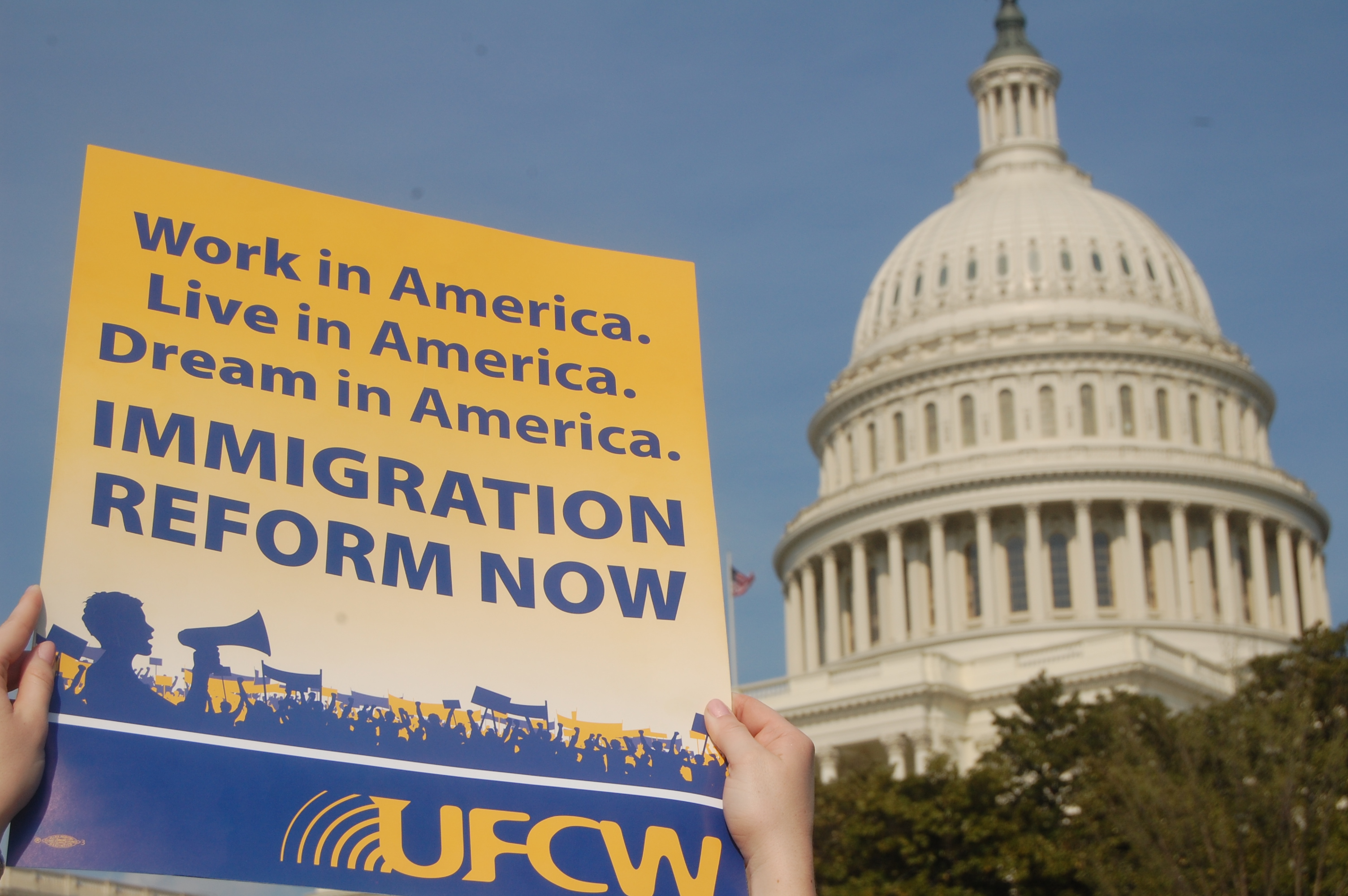 Today, The Hill published an Op-Ed by UFCW International President Marc Perrone and Executive Vice President Esther Lopez. In it, they remind us all that Labor Day isn’t just about celebrating the end of summer and cooking out. It’s a day to celebrate all hard-working men and women in America, including those who have been left out, thanks to our broken immigration system. Read the full op-ed below:
Today, The Hill published an Op-Ed by UFCW International President Marc Perrone and Executive Vice President Esther Lopez. In it, they remind us all that Labor Day isn’t just about celebrating the end of summer and cooking out. It’s a day to celebrate all hard-working men and women in America, including those who have been left out, thanks to our broken immigration system. Read the full op-ed below:
While many Americans look at Labor Day as the last weekend of summer and another opportunity to sit back and enjoy a barbeque with friends and family—the holiday was created to celebrate the accomplishments of hard-working men and women.
Labor Day is about celebrating the sacrifices working people have made to the shared prosperity of this country. It’s about valuing people, regardless of where they were born, for their work and the contributions they make to the economic well-being of our great country.
This Labor Day, we must challenge the political status quo that has left too many hard-working men and women to struggle alone in the shadows.
Nowhere has the failure of the status quo been more evident than in the struggle fix our country’s broken immigration system. There are over 11 million undocumented immigrants in this country, over 8 million of which are active in the workforce. We’re talking about workers, parents, community leaders, friends and neighbors whose hard work and daily contributions to our economy merit full participation in our society.
While an overwhelming majority of Americans support comprehensive immigration reform, our national dialogue continues to be hijacked by endless fearmongering and the antics of presidential campaigns jockeying for 2016.
Case in point, Donald Trump.
Donald Trump’s eccentric soundbites have not only dominated the conversation, they have further divided and obfuscated the serious debate over our country’s immigration crisis. Along with Mr. Trump’s unrealistic campaign promise to build a wall along our 2,000-mile long southern border, his calls for overturning the 14th amendment and constitutional right of birthright citizenship are radical and dangerous.
Immigration reform will clearly be a key issue as we head into the 2016 presidential elections. Both parties have a responsibility to engage in a substantive debate about how we can actually fix a broken immigration system that penalizes workers and families. Too much is at stake to let this important issue be driven by extreme proposals and divisive rhetoric.
All politicians, those in office and those running for office, need to understand that the inaction that has pervaded our political system is unacceptable. Inaction is not an option for millions of hard-working men and women who aspire to be Americans.
Above all, we as a country cannot afford to continue down a path that enables and permits employers to exploit all workers by cutting wages, lowering benefits, and punishing those who dare to speak out for a better life.
We would hope that every candidate acknowledges the fact that if you live and work hard in America, if you’re contributing to the prosperity of this nation, you should have the opportunity to become an American.
This Labor Day, let’s honor and respect the work of all hard-working people.
For the sake of a better America we all must believe in, let’s put divisive partisan politics aside and challenge our 2016 candidates to do what is right for the country, and not themselves.
Perrone is the president of the 1.3 million member United Food and Commercial Workers International Union. López is executive vice president of the United Food and Commercial Workers International Union.



